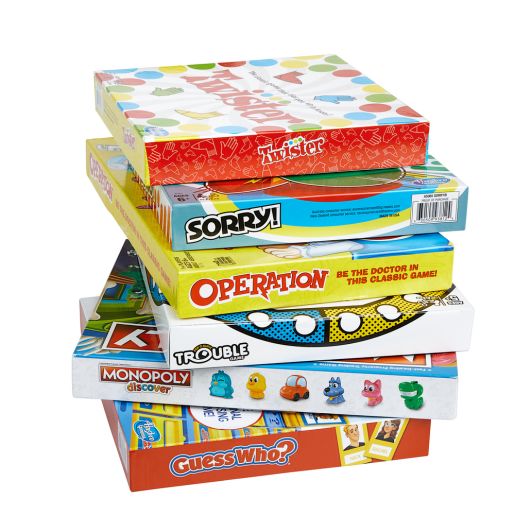- Empty cart.
- Continue Shopping
The Benefits of Board Games for Children

In today’s digital age, board games might seem like a relic of the past, but they offer a wealth of benefits that can enrich a child’s development. Far from being just a way to pass the time, board games can be educational, engaging, and socially enriching.
Cognitive Benefits
Problem-Solving Skills
Many board games require players to think critically and make strategic decisions. This helps children develop their problem-solving skills, which are essential in everyday life.
Enhances Memory and Focus
Board games often require players to remember specific rules, sequences, or patterns. This can help improve a child’s memory and attention span.
Math and Literacy Skills
Games that involve counting, reading, or pattern recognition can help reinforce math and literacy skills in a fun and engaging way.
Social Benefits
Teaches Teamwork
Many board games require players to work together toward a common goal. This teaches children the importance of teamwork and cooperation.
Emotional Intelligence
Board games often involve elements of luck and unpredictability. Learning how to cope with wins and losses gracefully can help children develop emotional resilience and empathy.
Enhances Communication Skills
Playing board games encourages dialogue and interaction, which can improve a child’s communication skills and vocabulary.
Emotional and Psychological Benefits
Reduces Screen Time
Board games offer a break from screen-based activities, which is beneficial for a child’s mental and emotional well-being.
Builds Self-Esteem
Winning a game or successfully achieving a challenging task can boost a child’s self-esteem and confidence.
Fosters Family Bonding
Board games are often played in a family setting, which can help strengthen bonds and create lasting memories.
Practical Tips for Choosing Board Games
Age-Appropriate
Always choose games that are appropriate for your child’s age and skill level to keep them engaged without causing frustration.
Educational Value
Look for games that offer educational benefits, such as those that involve math, vocabulary, or strategic thinking.
Replay Value
Choose games that can be played multiple times without losing their appeal. This ensures that your investment continues to provide value over time.
In conclusion, board games offer a plethora of benefits that contribute to a child’s holistic development. From enhancing cognitive abilities like problem-solving and memory to improving social skills like teamwork and communication, the advantages are manifold. Moreover, they offer emotional and psychological benefits like reduced screen time and increased self-esteem. By choosing age-appropriate games with educational value and replayability, parents can make board games a beneficial and enjoyable part of their children’s lives. So, the next time you’re looking for a family activity, consider breaking out a board game and enjoy the myriad benefits it offers.








